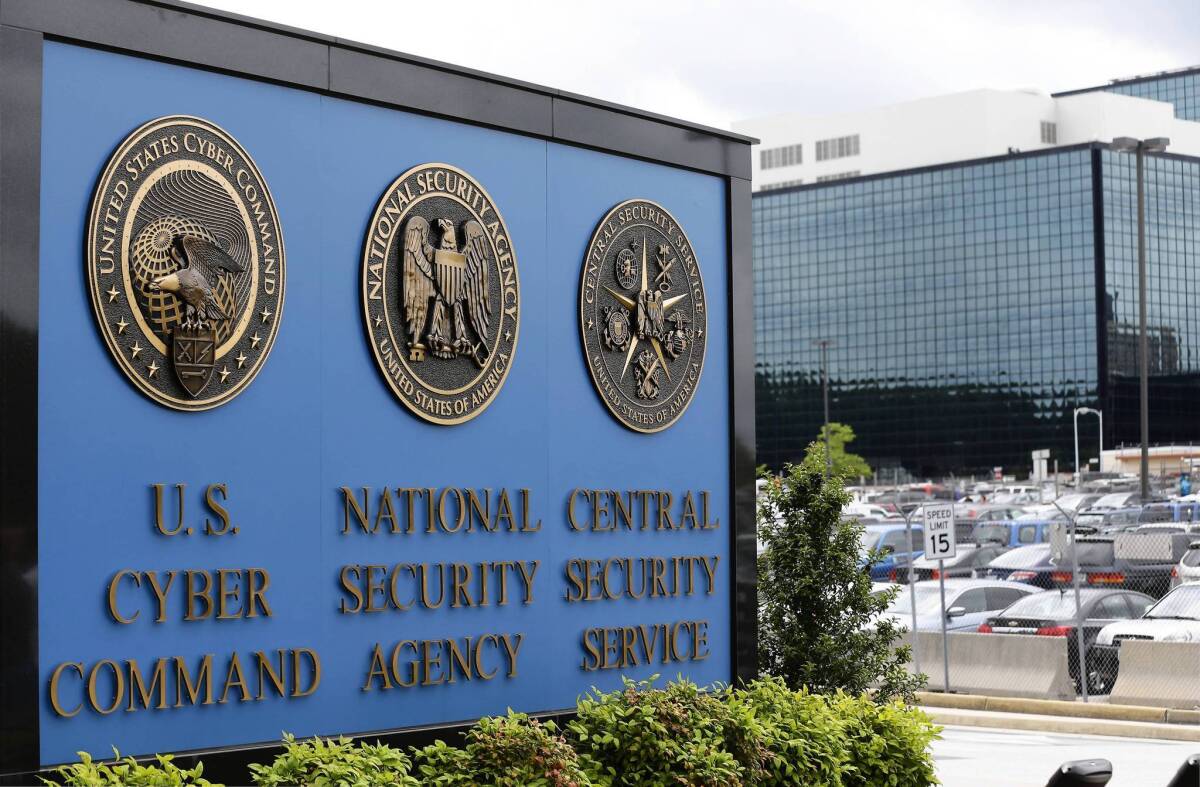Letters: Who’s watching the watchers?

Re “What Snowden got wrong: Everything,” Opinion, Aug. 11
Even if we are to believe former CIA officer Andrew Liepman’s assertion that leaker Edward Snowden was wrong and that the government’s intelligence agencies have no interest in reading our emails and listening to our phone calls, this is besides the point.
The point is that the CIA or the National Security Agency aren’t necessarily doing the surveillance; private corporations such as Booz Allen Hamilton (where Snowden worked) are. We the people of the United States have paid a for-profit corporation more than $1 billion for the privilege of spying on us.
If this doesn’t concern Liepman, then maybe he should read more people’s emails; he can start with this letter.
Scott Bedno
Los Angeles
I agree with Liepman and appreciate his informative, rational commentary on this issue.
What is so controversial about it is beyond me. As Liepman said, “The government isn’t interested in your phone call with your aunt, unless she’s a terrorist.” I’m sure few would oppose the government’s interception of communications pertaining to the accused Boston bomber.
Frankly, I’m more concerned about Google Glass, which will soon be on the market.
Cathy Housman
Fullerton
Liepman forgets that J. Edgar Hoover maintained his FBI directorship through six administrations by collecting tidbits of information on politicos, who under pressure from Hoover refused to challenge him.
So yes, there is more junk than can be read, but there are private accounts of people in power that can be perused for the specific purpose of coercion and not for national security. The big issue is this: Who is watching the watchers?
Robert Wagner
Sherman Oaks
I am one of those people Liepman describes as having “a deep-rooted distrust of government.” However, I am not a “conspiracy buff.” My distrust comes from having an understanding of history and how organizations work for their own preservation and aggrandizement.
Liepman frames the issue as a balance between privacy and security and concludes we should “err toward more secrets rather than fewer.” I frame the issue as a balance between cost and benefit: Could we be as secure as we are now by spending less?
If we are spending, say, $1 billion a year to save a few lives from a terrorist threat, that money could save more lives elsewhere. Only by erring on the side of less secrecy will we ever know if we are getting much value for what we pay for.
George Miller
Altadena
ALSO:
Letters: Military justice is top-notch
Letters: Israel’s future as a Jewish state
Letters: Gun bans won’t make colleges safer
More to Read
A cure for the common opinion
Get thought-provoking perspectives with our weekly newsletter.
You may occasionally receive promotional content from the Los Angeles Times.






